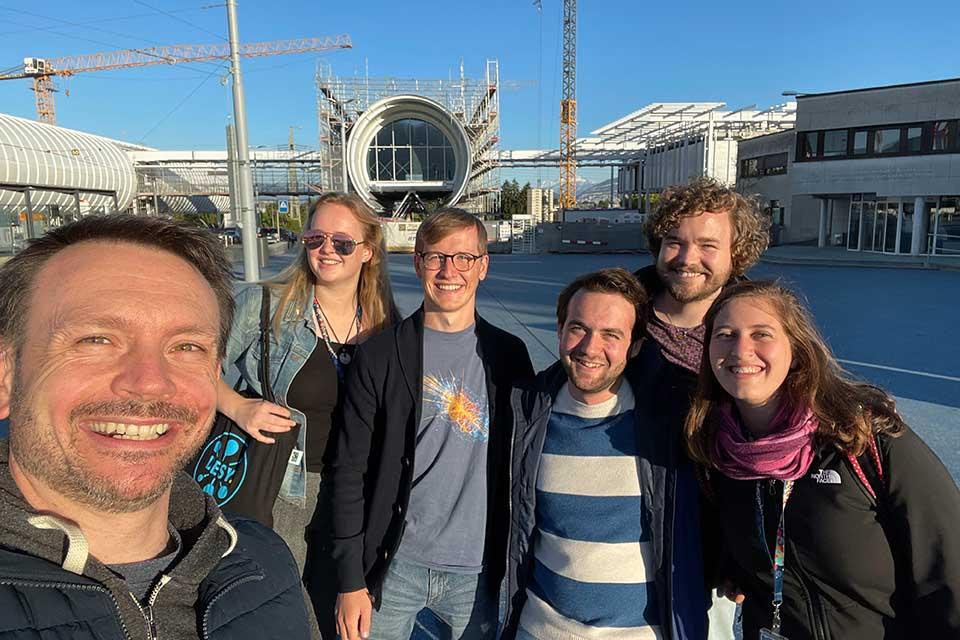The Big Data: ATLAS team has been has been awarded the Partnership Award in the South East Physics Network (SEPnet) Public Engagement Awards 2023 that took place on 11 September 2023. The award recognises the collaborative partnership that gives students aged 16+ from UK state schools the opportunity to work with data showing proton-proton collisions from the ATLAS detector at CERN.
The Big Data: ATLAS project, led by Professor Alan Barr from the Department of Physics at Oxford, brings together the Institute for Research in Schools (IRIS) and the Particle Physics Department at the Rutherford Appleton Laboratory (RAL). Over 30 weeks, students learn analytical and coding methods used by particle physicists and develop skills such as statistical analysis. They are taught how to use Python to access and manipulate ATLAS data; they then develop a research idea of their own and prepare a presentation to showcase their work. The project is designed to support students who may not have come across particle physics or computer programming before. The partnership has enabled 24 schools and 275 students (61% boys and 39% girls, with 93% from state schools) across the UK to engage with real particle physics research.
The Big Data: ATLAS team at Oxford comprises Professor Alan Barr, graduate students Eimear Conroy, Ludo Fraser-Taliente, Ynyr Harris and Alessandro Ruggiero, Postdoctoral Research Assistants Dr Thomas Hird and Dr Koichi Nagai and Outreach Programmes Manager Dr Sian Tedaldi.
Real data: original research
Graduate student Eimear Conroy comments: ‘When we began this project, our aim was to ask the question: can school students, with access to the right resources, perform their own original research using real physics data? It's been incredibly encouraging to find that the answer is clearly “yes”.’
‘As part of the Big Data: ATLAS project, I am delighted that we won the Partnership Award!’ adds Dr Sian Tedaldi, Outreach Programmes Manager at the Department of Physics. ‘Professor Barr’s project is ambitious but by partnering with IRIS and RAL, we have been able to realise it in a rigorous and engaging way. It is a great example of the culture of public engagement with research that we foster here at Oxford.’
The SEPnet Public Engagement Awards recognise excellence in public engagement with research across current and former SEPnet members with nine different categories of award: Newcomer Award (individual); Communication Award (individual); Innovation Project Award (project); Achievement Award (individual); Impact Project Award (project); Research Group Award (research group); Public Engagement Champion Award (individual); Strategic Approach to Public Engagement Award (department); and Partnership Award (partnerships).
The South East Physics Network (SEPnet) is a network of six universities in the south east of England working together to deliver excellence in physics. SEPnet currently comprises the University of Hertfordshire, the University of Portsmouth, Queen Mary University of London, Royal Holloway University of London, the University of Southampton and the University of Sussex. The University of Oxford has previously been an associate member of the network.
Oxford alumnus Dr Laurence Wroe won the Newcomer Award at the event while Dr Thomas Hird from Oxford's Department of Physics was highly commended in the Achievement Award category and Dr Katherine Shirley was highly commended in the Public Engagement Champion Award category.

